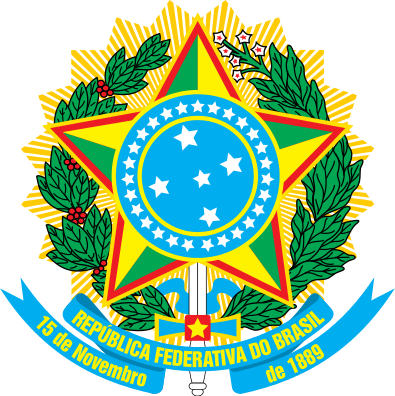Location
Following more than three centuries under Portuguese rule, Brazil gained its independence in 1822, maintaining a monarchical system of government until the abolition of slavery in 1888 and the subsequent proclamation of a republic by the military in 1889. Brazilian coffee exporters politically dominated the country until populist leader Getulio VARGAS rose to power in 1930. By far the largest and most populous country in South America, Brazil underwent more than a half century of populist and military government until 1985, when the military regime peacefully ceded power to civilian rulers. Brazil continues to pursue industrial and agricultural growth and development of its interior. Having successfully weathered a period of global financial difficulty in the late 20th century, Brazil was seen as one of the world’s strongest emerging markets and a contributor to global growth. The awarding of the 2014 FIFA World Cup and 2016 Summer Olympic Games, the first ever to be held in South America, was seen as symbolic of the country’s rise. However, since about 2013, Brazil has been plagued by a shrinking economy, growing unemployment, and rising inflation. Political scandal resulted in the impeachment of President Dilma ROUSSEFF in May 2016, a conviction that was upheld by the Senate in August 2016; her vice president, Michel TEMER, will serve as president until 2018, completing her second term.
Brazil is a federal presidential republic.
Source: CIA World Factbook
Members:
Resources
Displaying 6 - 10 of 180Decree No. 8.738 regulating the selection process for the families beneficiary of the National Agrarian Reform.
This Decree, consisting of 4 Chapters, regulates the selection process for the families beneficiary of the National Agrarian Reform. This Decree specifies the following issues: the selection of families candidates for being beneficiaries of the National Agrarian Reform Programme - PNRA, the verification of the beneficiary's conditions for staying in the Programme and the illegal occupation of the settlement projects, the provisional and definitive titling of the granted plots and the allocation of the remaining areas belonging to the land reform settlement projects.
Law No. 13.153 of 30 July 2015 approving the National Policy to Fight Desertification and Mitigate the effects of Drought (CNDC) and creating the National Committee to Combat Desertification.
This National Policy to Fight Desertification and Mitigate the Effects of Drought aims at performing the following activities: to prevent and combat desertification and recovery the degraded areas within the national territory; to prevent, adapt and mitigate the effects of drought throughout the country; to establish mechanisms of protection, preservation, conservation and restoration of natural resources; to harmonize socially and environmentally in a sustainable way the production and use of water resources through captation, storage and water pipeline infrastructures; to encourage scient
Law No. 13.214 establishing the principles, guidelines and objectives of the Territorial Development Policy of the State of Bahia.
This Law, consisting of 3 Chapters divided into 22 articles, establishes the principles, guidelines and objectives of the Territorial Development Policy of the State of Bahia, and creates the State Council of Territorial Development (CEDETER) and the Territorial Sustainable Development Collegial Agencies (CODETERs). It establishes spaces of social participation and relationship between the representations of the civil society and government authorities federal, state and municipal.
Diálogos sobre Justiça: SOLUÇÕES ALTERNATIVAS PARA CONFLITOS FUNDIÁRIOS URBANOS
A pesquisa sobre soluções alternativas para conflitos fundiários urbanos, Projeto BRA/05/036 Fortalecimento da Justiça Brasileira Convocação 01/12 resulta no presente relatório que tem como núcleo aprofundar o tema dos conflitos fundiários urbanos sob a perspectiva da identificação, mapeamento, catalogação e definição de conceitos e critérios capazes de configurar verdadeiramente tais situações, bem como produzir solução processual-normativa que estabeleça a resolução alternativa de conflitos como rotina para casos desse tipo, considerando as especificidades de cada um com base em uma tipo
O Estatuto da Cidade Comentado
Com seu processo de urbanização virtualmente concluído, muitas cidades latino-americanas têm respondido cada vez mais ao desafio de superar o legado de décadas de exclusão social. No Brasil, anos de pressão dos movimentos sociais colocaram a questão do acesso  terra urbana e a igualdade social no topo da lista das agendas política e de desenvolvimento. Confrontado com as diferenças sociais criadas por uma das sociedades mais desiguais do mundo, a resposta do Brasil foi a de mudar a Constituição a fim de promover uma reforma fundamental de longo prazo na din¢mica urbana.




